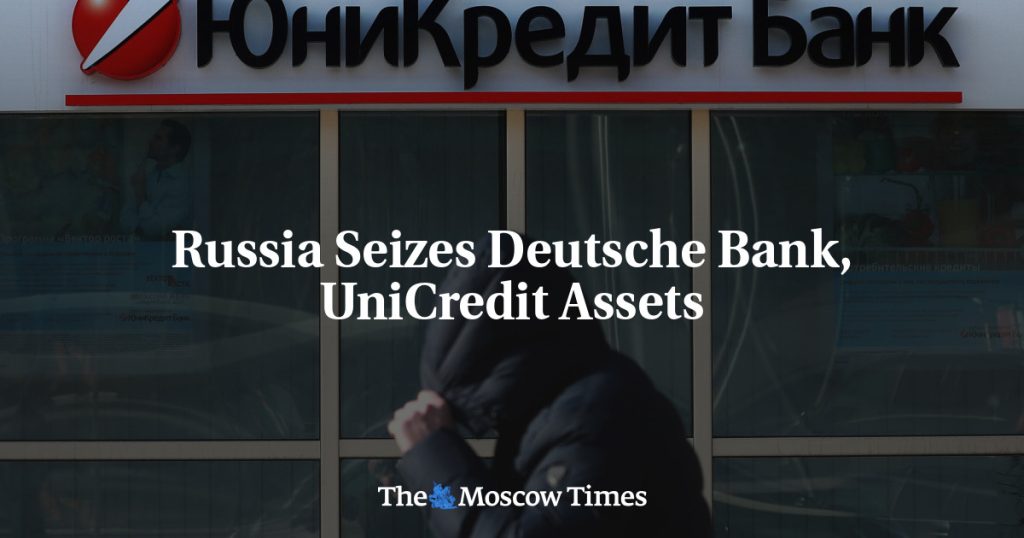A court in St. Petersburg, Russia recently ruled to seize assets of Deutsche Bank and UniCredit in the country totaling over 700 million euros. This decision came in response to a request from RusKhimAlians, a company planning to build a gas processing and liquefaction plant in cooperation with German company Linde, which withdrew from the project due to Russia’s military actions in Ukraine. Both European banks had served as guarantors for the project and were sued by RusKhimAlians as a result.
UniCredit, which was heavily exposed in Russia at the start of Moscow’s 2022 campaign in Ukraine, has been gradually reducing its presence in the country. The bank’s CEO, Andrea Orcel, expressed a desire to leave Russia, but has stopped short of selling its operations there due to concerns about respecting Western sanctions. UniCredit has succeeded in raising its capital ratio in recent years, which may help mitigate the impact of potential financial losses from its Russian operations.
Deutsche Bank, like UniCredit, found itself entangled in legal proceedings in Russia after backing the gas project that was ultimately abandoned due to geopolitical tensions. The court’s decision to seize its assets in Russia reflects the growing challenges faced by European banks in the country as political relations deteriorate. This move may further deter foreign financial institutions from engaging in projects in Russia, as the risks associated with operating in the country continue to escalate.
The decisions by the St. Petersburg court to seize assets of Deutsche Bank and UniCredit underscore the increasing complexities facing European banks operating in Russia. The ongoing conflict between Russia and Ukraine has prompted many foreign companies to reevaluate their presence in the region, with some opting to exit entirely. The legal actions against Deutsche Bank and UniCredit serve as a cautionary tale for other financial institutions considering investments in Russia amid the current geopolitical climate.
UniCredit’s struggles in Russia highlight the challenges faced by European banks navigating the shifting political landscape in the region. Despite expressing a desire to exit the country, the bank has been unable to find a suitable buyer for its Russian operations, leading to a stalemate in its efforts to divest from the market. The uncertainties surrounding Western sanctions and the deteriorating relationship between Russia and the West have made it increasingly difficult for European banks to operate in Russia without facing legal or financial repercussions.
Deutsche Bank and UniCredit’s legal troubles in Russia serve as a reminder of the risks associated with doing business in the country amid escalating geopolitical tensions. The seizure of their assets by the Russian court highlights the potential consequences for foreign financial institutions that find themselves caught in the crossfire of international conflicts. As European banks continue to grapple with the challenges of operating in Russia, the decisions made by Deutsche Bank and UniCredit may serve as a cautionary tale for other companies seeking opportunities in the region, urging them to carefully consider the political and legal ramifications of their investments.


